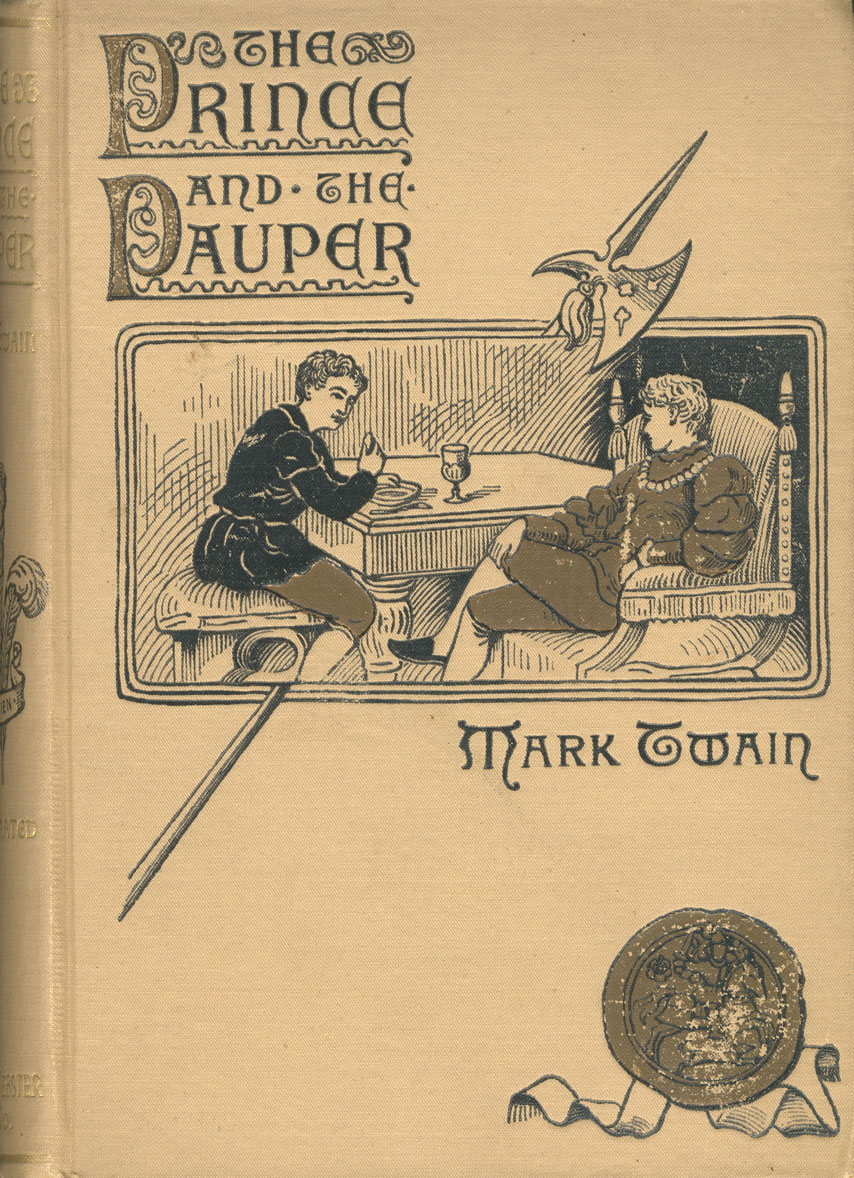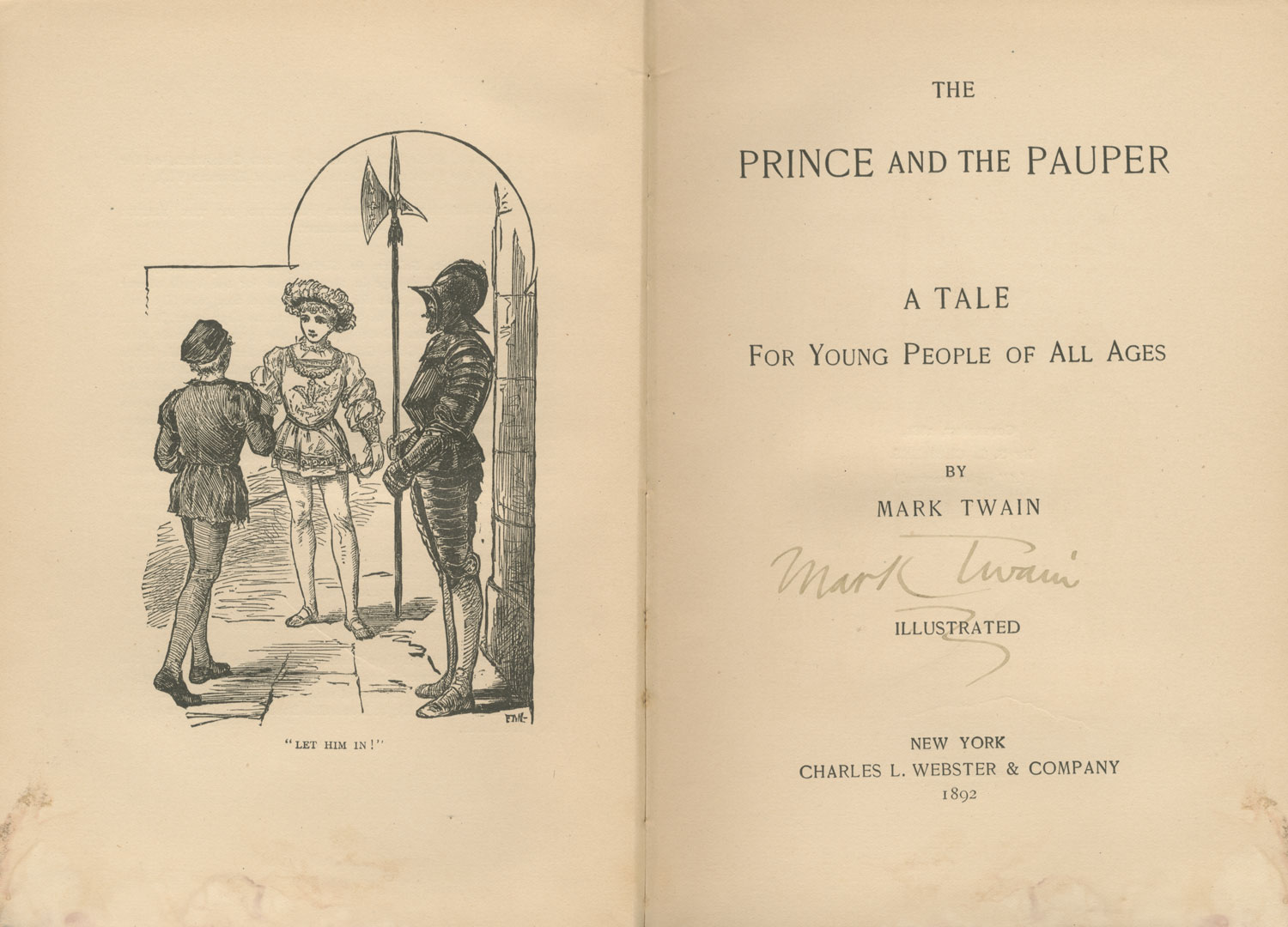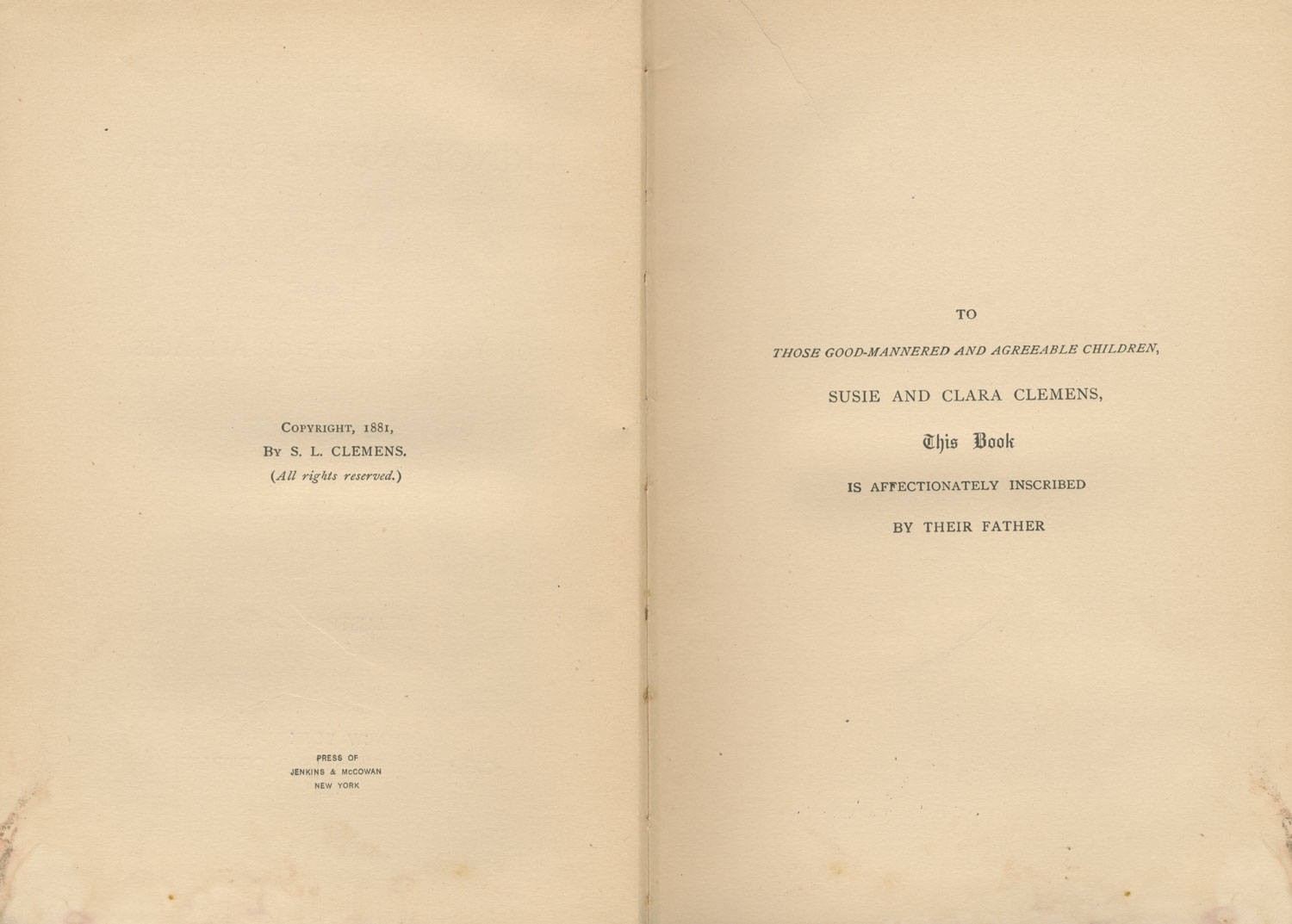Mark Twain
Mark Twain
Mark Twain Signed The Prince & the Pauper - 1892
Exceedingly rare signed copy of the 1892 illustrated edition of Mark Twain’s The Prince and the Pauper. Originally published in Canada in 1881 (1882 in the US), The Prince and the Pauper was Twain’s first book following The Adventures of Tom Sawyer (1876). It was his first attempt at historical fiction, and ranks among his earliest and most endearing social satires.
When Samuel Clemens started his own publishing house in May 1884, he hired his nephew Charles Webster to manage it and the company took Webster’s name as publisher. James R. Osgood, Clemens’s former publisher, declared bankruptcy in 1885, handing Twain the opportunity to acquire rights to all of his titles that were published by Osgood, which could then be published under Twain’s own Webster imprint. Webster then reissued this and other editions of The Prince and the Pauper, along with other books by Twain as well as many other notable authors of the day.
These Webster editions were bound in matching light tan bindings to appeal to buyers on a more limited budget who also wanted uniformity. In tightly-woven golden/brown cloth-covered boards with bright illustrations on cover, bright gilt lettering on a firm spine with a black emblem of three plumes; interior is intact and tight, with only slight lower edge damage to a couple front endpapers, and very mild toning on the title page, not affecting the signature. With 60 black and white illustrations throughout penned by Frank Thayer Merrill, whose work pleased Clemens in the original 1881 edition.
12mo (duodecimo), 8″ x 6″ 289 pages plus nine advertisements at the back. Very Good ++ condition, without dust jacket as issued. SIGNED “Mark Twain” on the title page. Additional photos provided on request.
Set in 16th-century England, The Prince and the Pauper is the story of two uncannily identical but discontented boys “temporarily” exchanging roles in life, and the consequences they encounter in doing so. Edward, the young Prince of Wales, yearns for freedom and adventure, a “normal” life away from the strict formalities of the royal court. With the help of Tom Canty, a beggar’s son, he realizes his dream is not at all what he had expected.
As Edward experiences the brutish life of a pauper firsthand, he becomes aware of the stark class inequality in England. In particular, he sees the harsh, punitive nature of the English judicial system where people are burned at the stake, pilloried, and flogged. Tom, posing as the prince, tries to cope with court customs and manners. His fellow nobles and palace staff think “the prince” has an illness which has caused memory loss and fear he will go mad. They repeatedly ask him about the missing “Great Seal,” but he knows nothing about it; however, when Tom is asked to sit in on judgments, his common-sense observations reassure them his mind is sound.
As is typical with Mark Twain’s books, morals abound: how perception often determines our reality; that walking in the shoes of another isn’t always what it’s made out to be; that the abuse of power has severe consequences.
A very rare signed copy in spectacular shape, especially for being over 120 years old.




